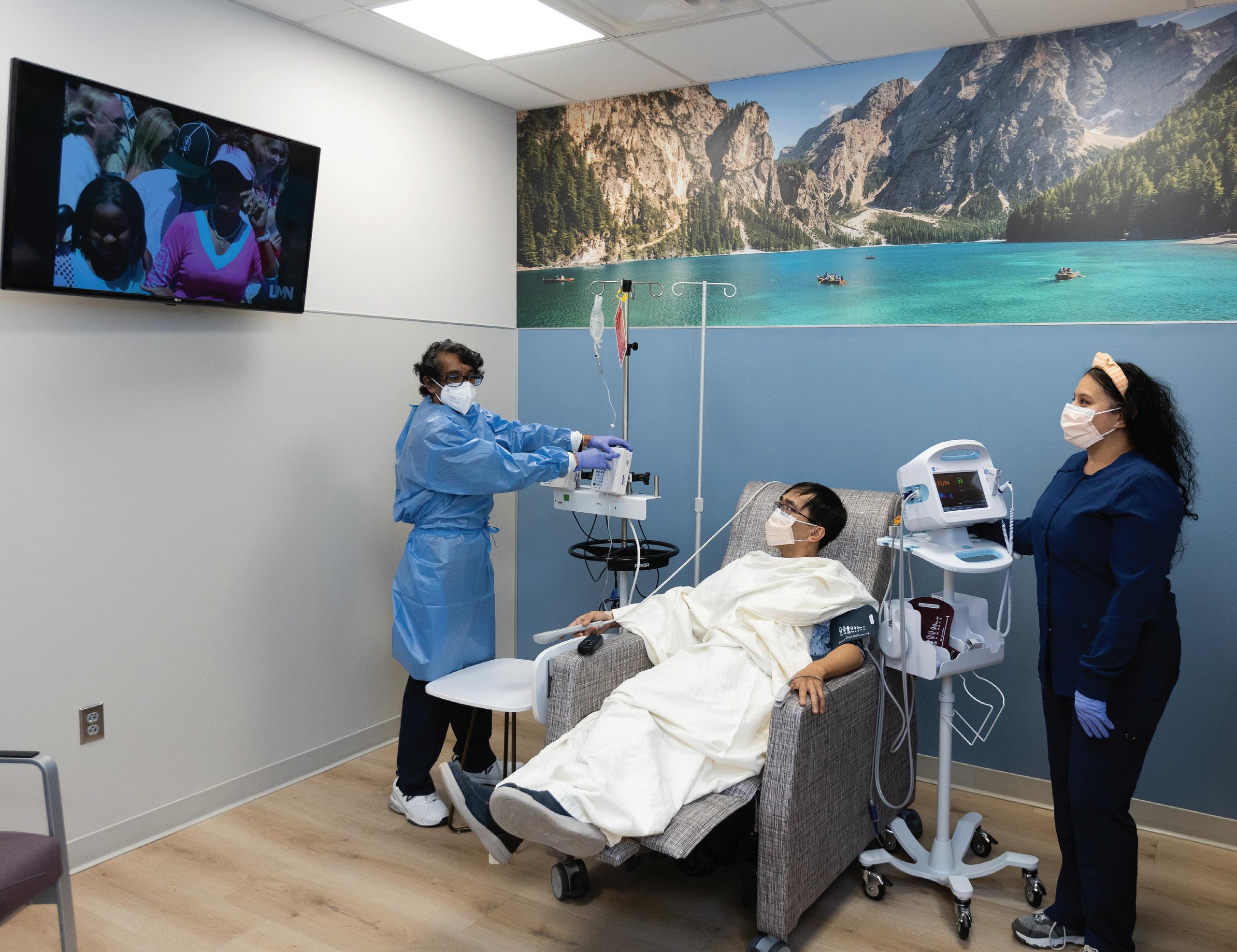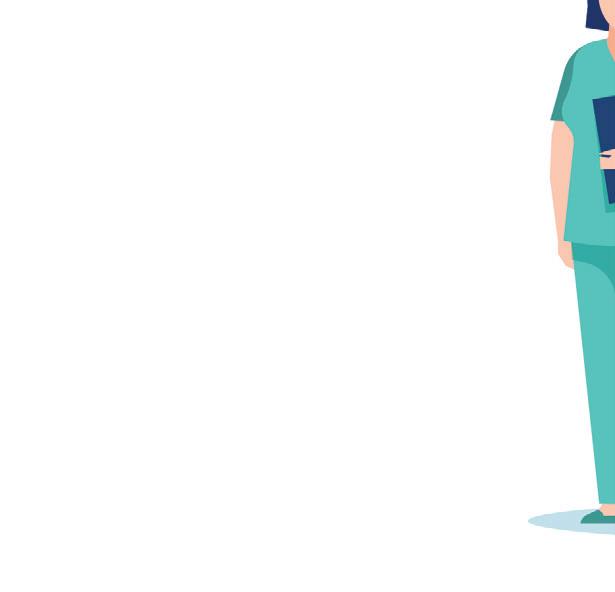
2 minute read
A ONE-STOP SHOP FOR VASCULAR CARE.
At left, a room in the newly renovated Vascular Center. Below, JCMC’s Vascular Center team reviews its EMR system. From left, Jeffrey Rodriguez, Practice Manager; Michael Curi, MD, Director; Joseph Huang, MD, attending vascular surgeon; Saqib Zia, MD, attending vascular surgeon.

AN UPGRADED CENTER PROVIDES A FULL SPECTRUM OF ADVANCED TREATMENT.
The newly renovated Vascular Center at Jersey City Medical Center (JCMC) allows patients to receive comprehensive diagnostic testing and treatment in one convenient location.
“The beauty of our Vascular Center is that it’s a one-stop shop for patients,” says Michael Curi, MD, Director of Vascular and Endovascular Surgery at JCMC and Chief, Division of Vascular Surgery, at Rutgers New Jersey Medical School. “In the past, patients would see a doctor to be evaluated, be sent elsewhere for their testing and then have to come back to review the results,” he says. “Now all three of those visits can be condensed into one.”
The state-of-the-art Vascular Center is approximately 2,350 square feet and includes a procedure room, a testing room and three examination rooms.
A RANGE OF NEEDS
While cardiologists specialize in diseases of the arteries leading to the heart, vascular surgeons specialize in treating the rest of the circulatory system.
A patient will typically be referred to a vascular surgeon by a primary care provider, a cardiologist or a podiatrist. Conditions commonly treated by vascular surgeons include: • Varicose veins, usually in the legs, which are enlarged due to increased blood pressure in the veins. “Nine times out of 10, these aren’t dangerous, but if somebody notices enlarged veins, they should come in for an evaluation,” says Dr. Curi. • Carotid artery disease, which occurs when plaque clogs the blood vessels that deliver blood to the brain and head, increasing the risk of stroke. “Without having to do invasive testing, we can do an ultrasound and determine whether someone is at risk of stroke,” says Dr. Curi. “We can treat this condition by cleaning the plaque or placing a stent—a small metal tube—in the artery to break up the blockage.”
• Peripheral arterial disease (PAD), in which narrowed arteries reduce blood flow to the limbs. “One of the first signs of PAD is a cramping pain in the calf muscles while walking, because the body is unable to get sufficient blood flow to the muscles,” says Dr. Curi. • Deep vein thrombosis (DVT), which occurs when a blood clot forms in one of the deep veins of the body, usually in the legs. “DVT can occur when a person is confined for a long time, such as on a long flight or being in bed for several days,” explains Dr. Curi. “The blood clots need to be managed carefully by vascular surgeons to prevent serious complications.”
Treatment for any of these conditions may or may not involve surgery. “At our center, we have the capability for minimally invasive endovascular procedures to treat conditions like varicose veins or vein disease,” says Dr. Curi. “However, we also prescribe many noninvasive therapies, such as medications, exercise therapy and compression therapy.”
The Jersey City Medical Center Vascular Center is located at 377 Jersey Avenue, Suite 460, Jersey City. To make an appointment, call 201.915.2448 or visit www.rwjbh.org/hudsoncounty.










